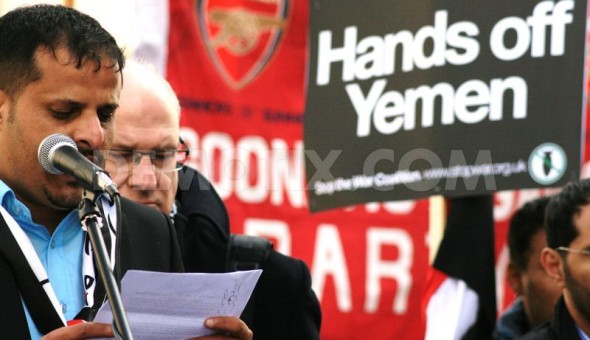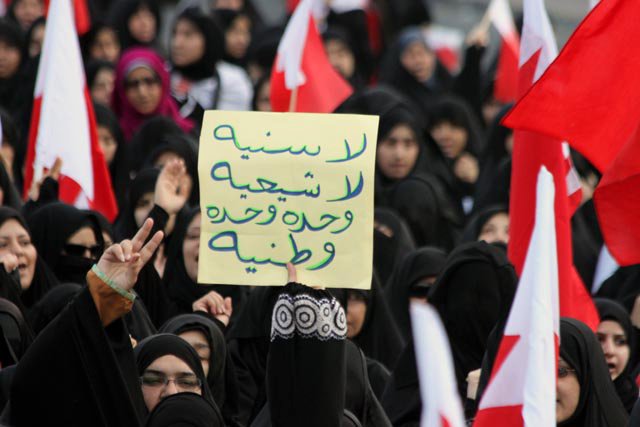US Responds to Escalation of Conflict in Yemen Nikolai BOBKIN | 22.04.2015 | 00:00
The US expands its involvement into the events in Yemen. It was reported that a U.S. aircraft carrier was dispatched to the waters off Yemen on April 20 to join other American ships prepared to block any Iranian weapons shipments to Shiite Houthi rebels fighting in the country. The USS Theodore Roosevelt – along with her escort ship, the USS Normandy, a guided-missile cruiser – left the Persian Gulf on April 19 route for the Arabian Sea, to help enforce the blockade. The ships will join the naval force including seven warships and three auxiliary vessels deployed in the Arabian Sea, the Aden Gulf and Bab-el-Mandeb Strait. Formally the mission is to ensure the vital shipping lanes in the region remain open and safe. The statement of U.S. Naval Forces Central Command Public Affairs emphasizes that the United States remains committed to its regional partners and to maintaining security in the maritime environment. The real purpose of naval blockade is to deny Iranian ships access to Yemeni ports and deprive the insurgent Houthis of aid coming from Iran. Saudi Arabia is not up to the task. Once again Americans side with the enemies of Iran. Riyadh feels pretty comfortable under the US umbrella. The development of events may aggravate the situation. The White House has taken another hasty step on the way of rendering its support to Saudi Arabia in its confrontation with Iran. Somehow the US administration is sure that the regional tensions exacerbated as a result of the conflict in Yemen don’t threaten the nuclear deal with Iran. Tehran thinks differently. It is time for the US and its allies to choose between cooperation and confrontation, Iranian Foreign Minister Mohammad Javad Zarif said in reference to current nuclear negotiations with the West in a April 20 New York Times op-ed he wrote. «We agreed on parameters to remove any doubt about the exclusively peaceful nature of Iran’s nuclear program,» Zarif wrote, claiming that the Iranian people had done their part to facilitate an agreement, and now the onus is on the US and its allies to follow suit. «It is time for the United States and its Western allies to make the choice between cooperation and confrontation, between negotiations and grandstanding, and between agreement and coercion,» he said. After the air campaign against Yemen was launched, the intensity of air strikes against the Islamic State in Iraq and Syria is visibly on the wane. With the USS Theodore Roosevelt battle group leaving its position, the Pentagon actually stopped fighting the Islamic State militants in favor of joining the operation against the Houthis. The battle group was the main strike force in the anti-Islamic State operation. The White House hopes the tensions between Saudi Arabia and Iran will escalate. In Iraq Riyadh adopted the policy of inciting political groups, tribes and clans to violence against each other to make the country plunge in the quagmire of chaos and unrest after the US forces were gone. President Obama says the United States has «renewed our alliances from Europe to Asia». There is no ground to believe it is relevant in case of the Middle East. As before, the United States relies on military alliances with Israel and Saudi Arabia. Nothing makes believe that the progress achieved at the nuclear talks with Iran will lead to reduction of tensions when it comes to other regional problems. There is no normalization of US-Iran relationship in sight. In Yemen the US administration supports the military operation against the Shiites who control the larger part of the country and fight the terrorists of Al Qaeda. True, the United States abstains from having boots on the ground like it did at the start of the century. But the strategy remains the same. Now Washington prefers to let others do the dirty work. The prospect for an overwhelming nuclear deal with Iran is still a purely hypothetical one. New forms of regional cooperation should be created to make the agreement a turning point in the process of bringing peace and security to the Middle East. Americans believe they could make Tehran forget its national interests. The West is reluctant to lift sanctions because in this case it would lose leverage over Tehran. All Iran’s proposals and initiatives on regional security are refused without any serious consideration. On April 14, the United Nations Security Council imposed an arms embargo against the Houthi rebels in Yemen and blacklisted the son of Yemen’s former president and a Houthi leader. The resolution urges the Houthis, who are based in northwestern Yemen, to give up the areas they have seized as well as their weapons, including «missile systems». Arab states said the resolution was a diplomatic victory. The document makes possible to increase pressure on the Houthis. Russia is not satisfied with the resolution. According to Russian deputy foreign minister Gennady Gatilov, the resolution was somewhat one-sided with too much focus on condemning the Houthis. Moscow said the resolution was not fully in line with what was required by the crisis in Yemen. The text failed to take into account proposals his country had made and to call on all sides to halt fire, did not provide for due reflection on consequences and lacked clarity on a humanitarian pause. There were also inappropriate references to sanctions. By and large, this position was echoed by Iran. The Iranian government sent a letter to the UN Secretary General with proposals on managing the Yemeni crisis. Iran’s foreign minister on April 17 submitted a letter to U.N. Secretary-General Ban Ki-moon outlining a four-point peace plan for Yemen. The plan, which Foreign Minister Mohammad Javad Zarif announced earlier this month, calls for an immediate ceasefire and end of all foreign military attacks, humanitarian assistance, a resumption of broad national dialogue and «establishment of an inclusive national unity government.» «It is imperative for the international community to get more effectively involved in ending the senseless aerial attacks and establishing a ceasefire, ensuring delivery of humanitarian and medical assistance to the people of Yemen and restoring peace and stability to this country through dialogue and national reconciliation without pre-conditions», said Zarif’s letter. No way should Yemen become a springboard used by Saudi Arabia for attacking Iran. If Americans had paid at least some attention to the Iranian plan on peaceful settlement in Yemen, they would not have to deal with the situation created by their excessively aggressive Arab partners. America should look into the future, not the past. The United States has done more bad than good for the Middle East. President Obama likes to say that when he came to power there were over 180 thousand US servicemen in Iraq and Afghanistan. Now the number is less than 15 thousand. It would be more important to stress that the both countries have so far failed to stop civil wars. The United States has spent over $800 billion for Operation Enduring Freedom. The situation in the country has not improved. Not normalization is in sight. In Iraq the Islamic State jihadists control a third of the country’s territory, as well as large chunks of land in Syria. The threat of spreading their activities on the whole region is quite real. Having unleashed a war in Yemen, the United States and its allies add fuel to the fire.



